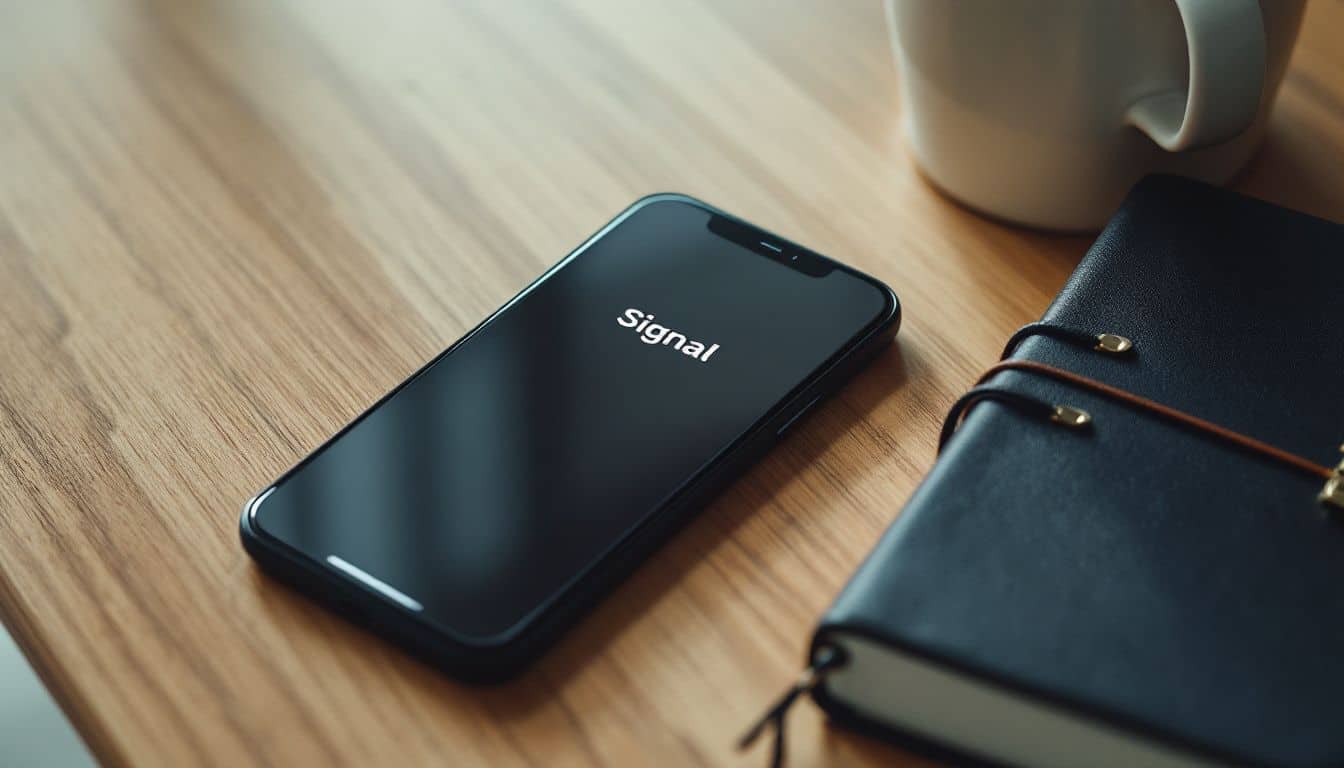Worried about who might be spying on your texts and calls? Signal is a messaging app that uses end-to-end encryption, making sure no one—not even the company itself—can ever read or access your chats.
In this post, you’ll learn about 15 clever privacy perks Signal offers to keep your conversations safe from eavesdropping and big tech tracking. Curious why do people like Signal? Keep reading to find out!
Key Takeaways
Signal uses full end-to-end encryption—this means nobody, including Signal itself, can see your messages or listen in on your calls.
Signal is a nonprofit app funded purely through donations, so you’ll never see ads, and your data stays private—no tracking involved.
Its source code is publicly available, allowing security pros to inspect it closely for possible weaknesses—unlike closed services such as Facebook Messenger.
You get handy privacy options like disappearing messages, a secure screen lock, and discreet notifications that don’t reveal chat contents on your screen.
Signal supports up to five devices at a time—perfect if you want to easily jump from your phone to a computer or tablet without missing any messages.
Table of Contents
Signal’s Core Focus on Privacy
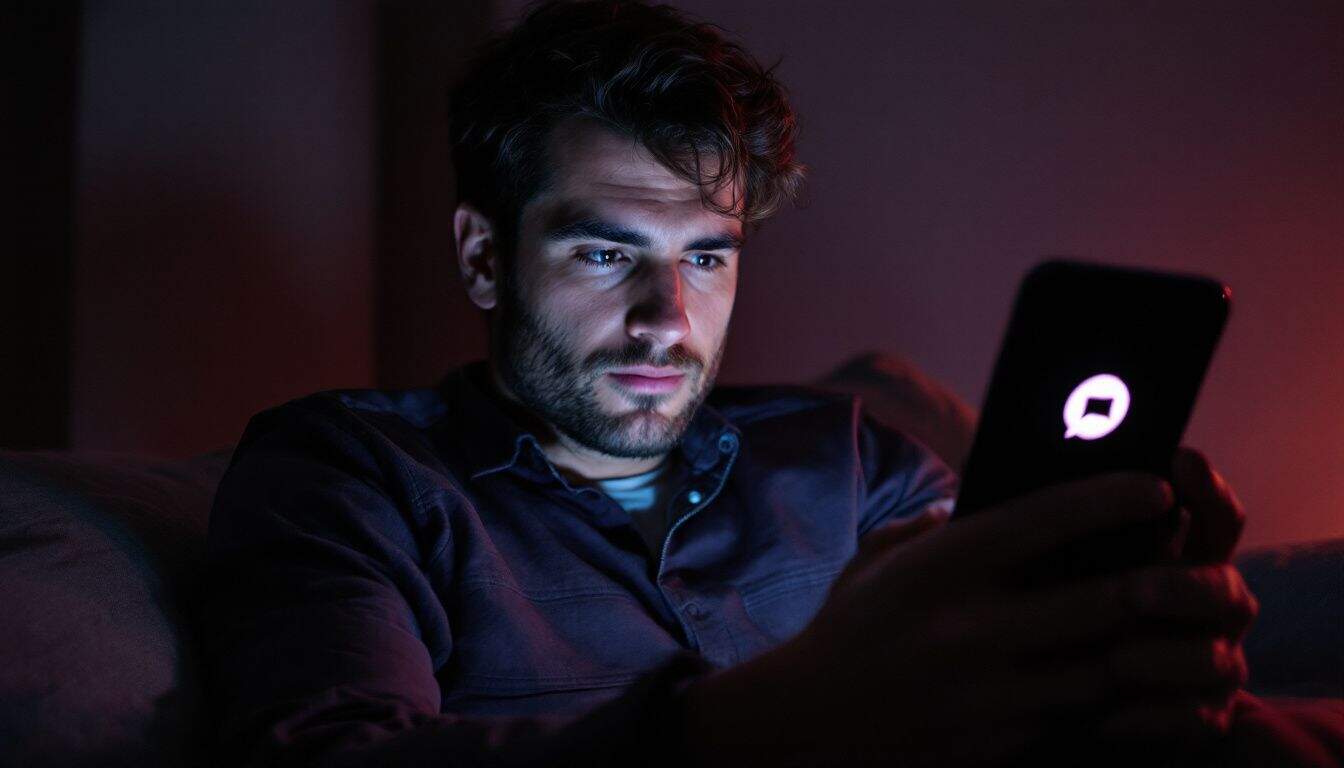
Now that we’ve got the basics down, let’s explore what sets Signal apart. At its core, Signal values your privacy above anything else. Many messaging apps collect personal data, but Signal firmly rejects that model.
It keeps messages only on your phone—not on company servers—so your conversations remain truly private. This commitment separates Signal from apps like WhatsApp and Messenger, which sometimes send your data back to their parent companies.
Signal doesn’t know who you are, who you talk to, what you say, or even what your profile picture looks like.
Privacy is central throughout the entire Signal app. The company never tracks your conversations or contacts. As a nonprofit organization, Signal makes no money selling ads or personal details.
End-to-end encryption secures your calls, messages, and files, protecting them from unwanted eyes. If digital rights and privacy matter most to you, Signal offers unmatched peace of mind.
End-to-End Encryption

Signal puts privacy first—with true end-to-end encryption as its standout feature. The app locks your messages, so only you and your recipient can read what’s sent. Other messaging platforms often have access to users’ chats, but Signal can’t peek at yours.
That’s because you—rather than Signal—hold the keys to decode your texts. I even tested this myself by checking network traffic; Signal never saw any message content. It encrypts every detail, including profile photos, names, and metadata like who chats with whom.
What sets Signal apart is its built-in resistance to quantum computers. Future quantum machines might crack weaker encryption, but Signal’s protection holds firm. Its encryption protocol secures conversations across all your gadgets—iPhones, Android phones, and laptops—to keep them difficult to hack.
Messages pass through Signal’s servers, sealed tightly by encryption that only your devices can unlock. SMS texts or apps storing message backups don’t come close in terms of safety.
Open-Source Platform

Signal’s code sits openly online, ready for anyone to examine. This open-source design lets tech experts freely check for bugs or security gaps inside the real code. I’ve explored sections myself—and found this openness reassuring, especially after using closed apps that keep their workings hidden.
The nonprofit running Signal actively welcomes input from its users, building trust with privacy enthusiasts. Public checks of Signal’s code function as ongoing security reviews—something that Facebook and other closed apps simply can’t match.
Matthew Rosenfeld—better known as Moxie Marlinspike—created this open system to allow independent reviews, rather than ask users to blindly trust corporate promises.
Tech enthusiasts appreciate Signal’s crypto methods being publicly reviewed and tested. The app doesn’t hide its secrets behind corporate secrecy. Its open peer-review approach finds issues quicker than any private internal team.
Because of this public testing, the Signal Protocol grows stronger, protecting the privacy of every text you send. Other messaging platforms can’t offer the same proven security, openly supported by transparent evidence.
No Ads or User Tracking

Signal is different from other messaging apps—no ads, no tracking, just privacy. As a nonprofit organization, Signal doesn’t need your personal data to turn a profit. Instead, the app relies entirely on donations and grants, ditching the usual business model of selling user information.
This keeps your texting clear and comfortable, with no creepy ads popping up based on your conversations.
Privacy isn’t something you should have to pay for with your personal data.
Your messages stay completely private; Signal doesn’t record who you contact, your conversations, or the groups you join. Big tech companies usually collect details about you to help advertisers show you targeted ads.
But Signal doesn’t scan your chats or use your conversations to push products you’ve just mentioned. Because of this commitment to privacy, many tech-focused users prefer Signal over other messaging platforms.
Advanced Security Features

Signal packs some serious security muscle beyond basic encryption. The app gives you tools to lock down your chats with features that go way past what most messaging apps offer.
Disappearing Messages
Signal lets you control your chat history with a handy self-destruct feature. You can choose messages to vanish quickly—in as little as 30 seconds—or stick around for as long as four weeks.
This privacy tool is perfect for sharing sensitive items, like passwords or personal details, that you’d rather not keep stored long-term. Tech enthusiasts particularly enjoy it, because once the timer ends, messages vanish completely from both devices, leaving zero digital footprints behind.
The auto-delete option also helps free up space on your phone, solving storage headaches. But, this handy feature can create tricky legal situations. Some companies must keep official records—Signal’s disappearing messages don’t work well under those rules.
End-to-end encryption coupled with auto-deletion makes Signal popular with privacy-minded users, who prefer keeping online conversations as private as chatting face-to-face.
Screen Lock and Notification Privacy
Signal goes beyond disappearing messages—it takes your privacy one step further, with its Screen Lock option. This handy feature stops curious friends or coworkers from peeking at your chats if they pick up your phone.
You can quickly set it up in settings, requiring your device PIN, fingerprint, or a passphrase to unlock your conversations. Personally, I’ve found this really useful while leaving my phone unattended at work.
For Android users, there’s an extra perk; you can activate Signal’s lock directly from your notification tray.
The app also protects message previews in your notification alerts, keeping prying eyes out of your private texts. No more anxiety about friends seeing your messages when borrowing your phone—or coworkers catching alerts that pop up during meetings.
Your private chats stay private, even with messages flashing across your screen. Together, these two privacy features—screen locking and hidden notifications—make Signal a strong protector of your personal conversations, far better than most messaging apps out there.
Session Verification
Signal has a smart feature to help ensure you’re chatting with the right person. Each chat receives its own unique “safety number”, which both users can easily verify. I like using this tool, especially for private or sensitive conversations.
You can check the safety number by scanning a QR code or simply comparing the digits manually. If the numbers match on your phones—you’re good, no one’s secretly snooping.
Trust is good, verification is better. Signal’s safety numbers give you proof that your conversations remain truly private.
Ease of Use and Intuitive Design
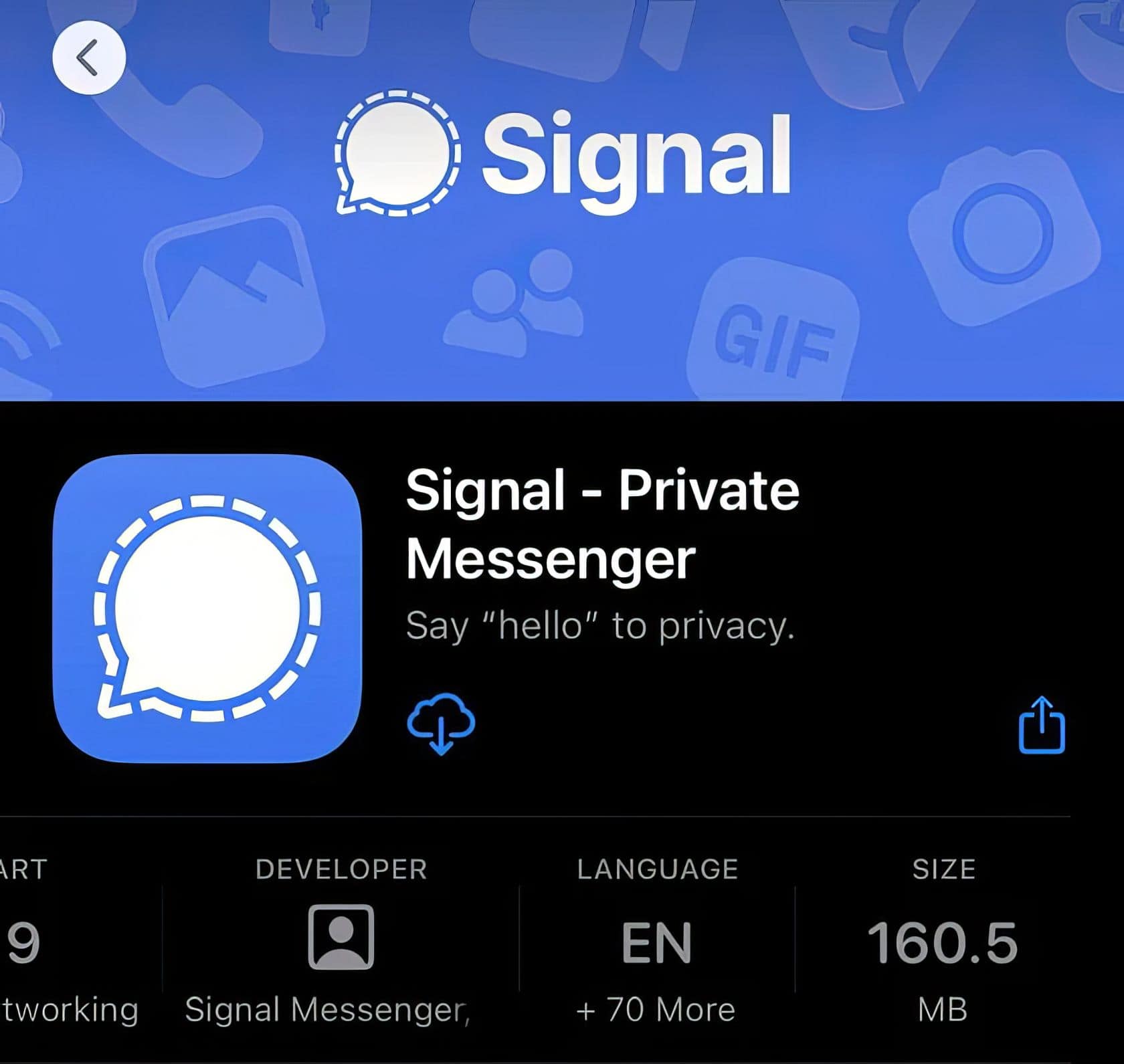
Signal strikes a perfect balance between ease of use and solid security. With its clear, user-friendly layout, sending encrypted messages becomes as simple as chatting on any regular messaging app.
Version 5.5.0 enhanced the app’s sign-up process, clearly explaining why permissions are needed and giving you a chance to double-check your phone number before verification. No technical know-how required—it’s that easy.
Using Signal feels comfortable and smooth on both iPhones and Android phones, complete with familiar message bubbles, emoji reactions, and clear icons.
The handy tips right after sign-up make a huge difference for beginners. These friendly hints gently guide users toward helpful features, so no one feels unsure or overwhelmed. Plus, useful extras like Touch ID and Face ID keep your app secure with a simple touch or glance, and you can even pick wallpapers to give chats your personal style.
Even my friends who usually shy away from tech had Signal figured out in minutes. The app is simple enough to grab right away—but still offers powerful privacy features that set it apart.
Cross-Platform Compatibility
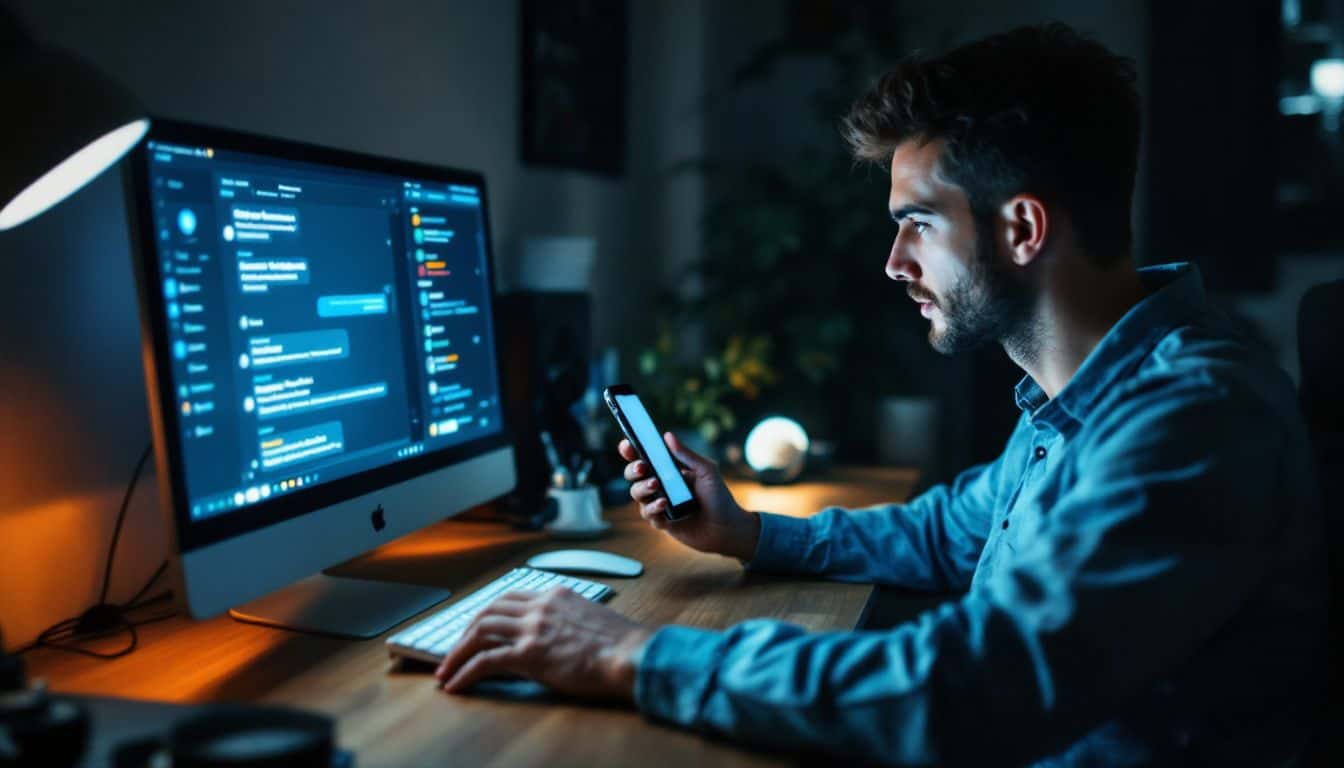
Signal offers more than just a clean, simple design—it really stands out with great multi-device support. You can switch effortlessly between your desktop, iPhone, or Android, without missing any messages or calls.
Since the app supports connection to up to five devices at once, it’s ideal if you regularly move between your phone and laptop all day. Personally, this feature saves me loads of time—I don’t need to stop typing on my laptop just to reach for the phone sitting across the table.
The secret behind this seamless cross-platform experience lies in Signal’s local message storage. Your messages stay right on your device, instead of floating around in a cloud somewhere.
As a bonus, this method means quicker syncing and improved privacy for your messages, files, and calls. Several tech-savvy friends have switched from other messenger apps to Signal precisely because it handles multiple devices so smoothly, without losing speed or security, or forcing constant device-switching.
Enhanced Group Messaging Features

With Signal, group chats become easy—even with 1,000 people in one conversation. That huge capacity lets you build communities big or small, from casual family chats to large work teams.
I’ve personally used Signal for tech events, smoothly coordinating dozens of volunteers without lagging or crashes. The app easily handles large group conversations while protecting each message with default end-to-end encryption.
No outsiders—including Signal itself—can peek into your private group discussions.
Group video calls comfortably host up to 50 people at a time, making secure virtual gatherings simple. You can freely share PDFs, images, and other files without worrying about annoying size limits common to similar apps.
Admins have handy, clear tools to manage group members and establish basic rules. I especially enjoy Signal’s user-friendly and uncluttered interface: no excessive buttons or confusing settings, just straightforward controls.
Inviting new members through QR codes also makes expanding your secure groups quick, painless, and hassle-free.
High-Quality Voice and Video Calls
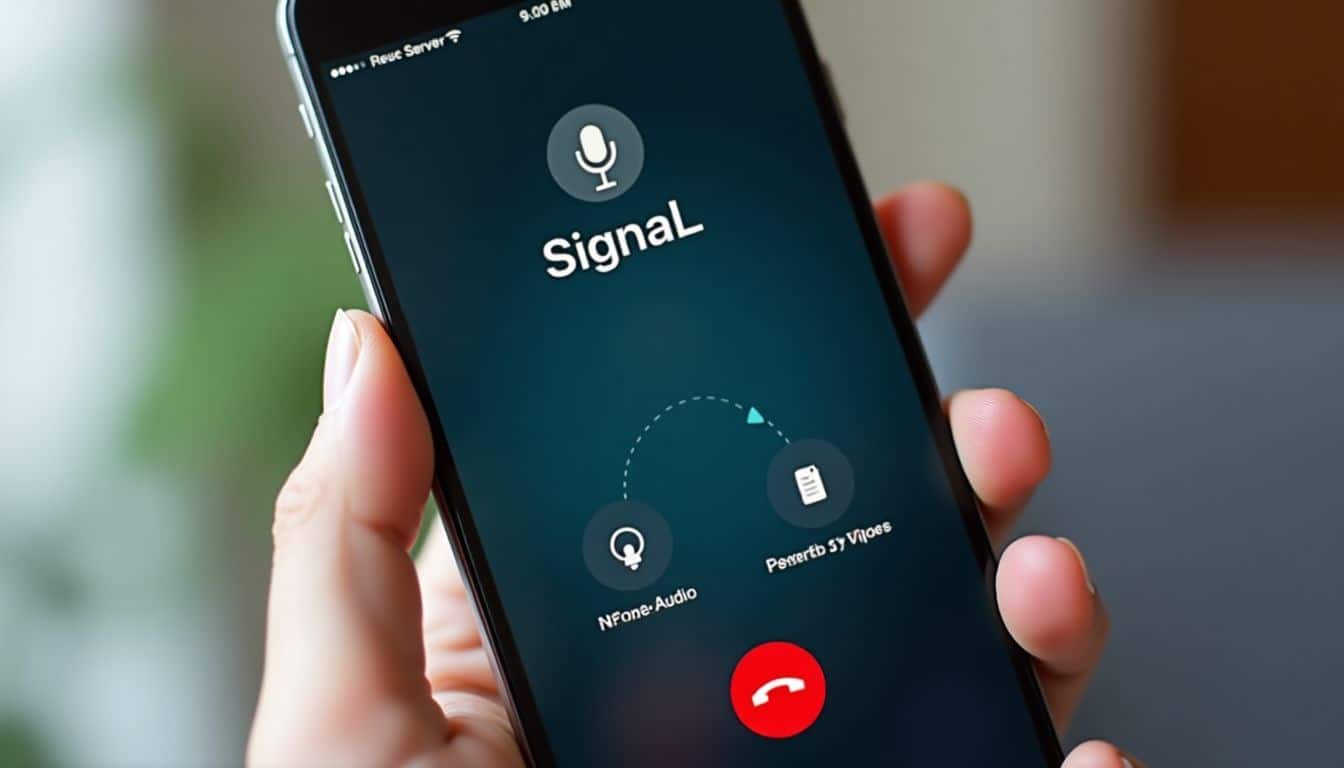
Signal offers impressive voice and video calls, easily matching the quality you’d find on leading communication apps. It directs calls through servers strategically placed worldwide, cutting lag and keeping conversations smooth.
I’ve personally noticed a difference since making the switch—my connection stays solid, even with shaky internet coverage. Each year, Signal manages huge amounts of calls, handling roughly 20 petabytes of data.
To achieve this, Signal uses powerful systems like Amazon AWS, Google Compute Engine, and Microsoft Azure.
This advanced setup isn’t cheap—Signal spends about $1.7 million every year just for bandwidth. Yet, the result is dependable, secure, peer-to-peer communication—protecting your chats from beginning to end.
Signal encrypts all your calls across different devices and platforms, without storing any talking points or private details. Quality and security share equal importance in Signal’s design, so you never have to sacrifice one for the other.
Sharing Files Seamlessly
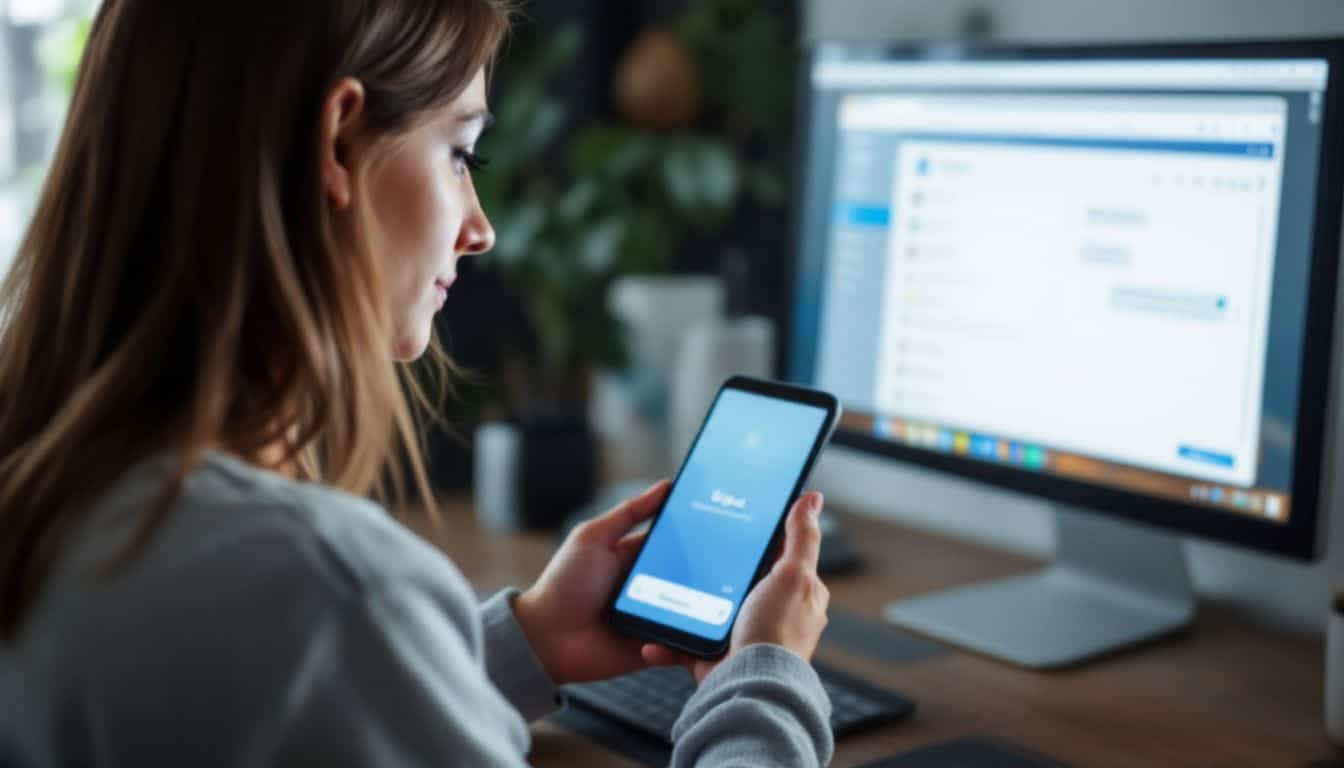
Signal isn’t just great for clear phone calls—it also makes sharing files super easy, especially if tech is your thing. Right inside the app, you can quickly pass photos, videos, GIFs, and even documents to your friends.
Compared to many other apps, Signal lets you send larger files pretty comfortably. On Android, you’re able to share videos up to 500 MB and general files up to 100 MB without issue.
For iPhone users, photos can be sent if they’re under 8 MB, while videos can be as big as 95 MB. And if you’re on desktop, most files up to 100 MB move smoothly.
Everything you share stays safe, traveling through Signal’s encrypted channels—so no nosy eyes can peek at your documents or memes. Personally, I’ve shared sensitive work documents using Signal for years now and never ran into security trouble even once.
The app supports all kinds of file formats across different devices; sending from an Android phone to an iPhone (or vice versa) works without any hiccups at all. This smooth file transfer setup makes Signal a good choice, whether you’re casually swapping fun stuff or cautiously sending personal files that require extra safety.
Minimal Data Storage Policy
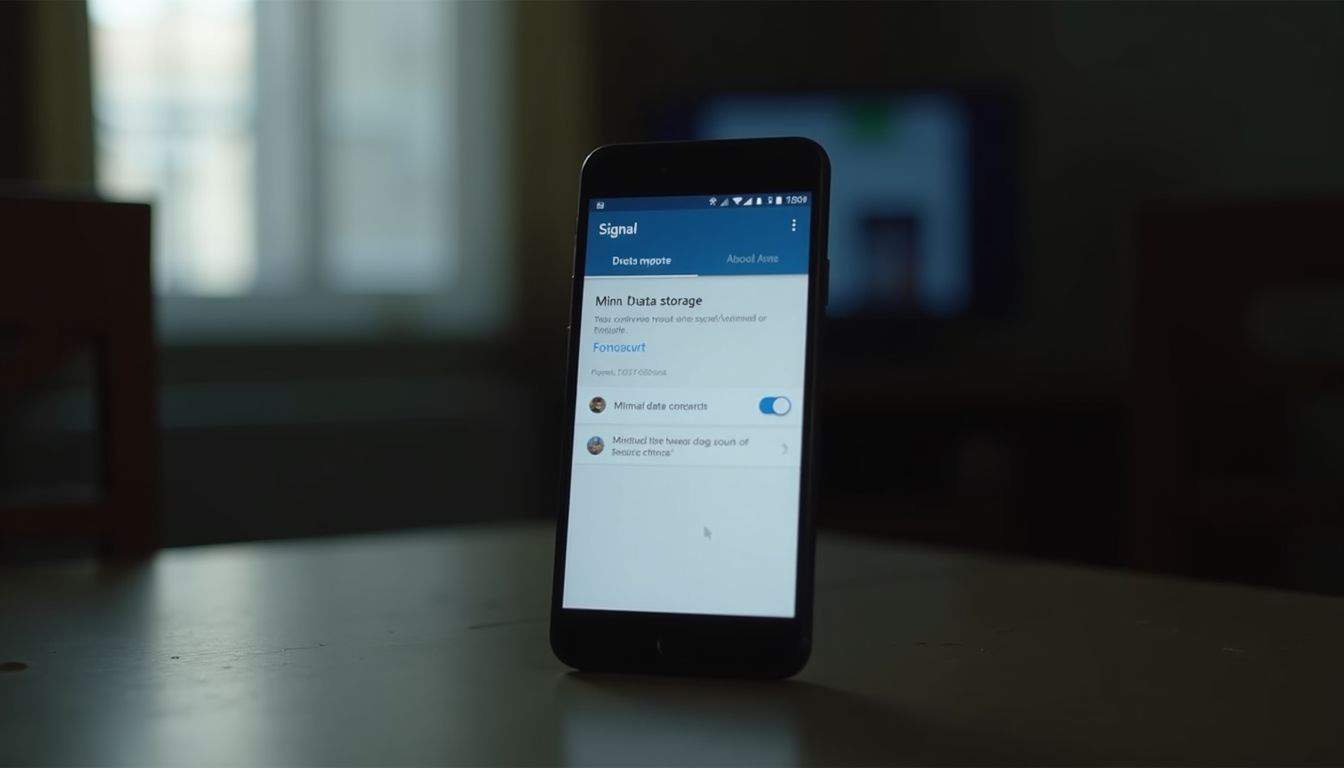
Beyond just simple file sharing, Signal boosts your privacy by storing minimal user data. Most messaging apps hold your chats on distant servers, but Signal doesn’t keep your messages or personal details.
In fact, the app strictly follows GDPR guidelines, collecting only essential information. Your texts, photos, or documents stay safely on your own device—not sitting in some remote data center, open to risks.
So you always have control; even if outsiders demand access, Signal literally can’t hand it over.
This zero-knowledge approach offers true security for your private conversations. Signal doesn’t track your contacts, chats, or app usage. The company can’t sell your data because, frankly, they don’t gather it to start with.
In contrast, platforms like iMessage and Telegram often store more personal information. For anyone concerned about safety, Signal’s end-to-end encryption ensures your messages stay fully private, without the app holding keys to decode them.
And yes—you can conveniently export your content, if you decide to; that decision rests completely with you.
Why Signal Stands Out Among Competitors

Signal stores very little of your data, and that directly helps it beat rivals at protecting privacy. Unlike WhatsApp—owned by Meta’s Facebook—or Telegram, Signal is entirely independent.
It’s run by a nonprofit called the Signal Technology Foundation, not some profit-driven tech giant. That really counts, because it means your conversations actually stay private.
I switched from WhatsApp about a year ago, and the improvement hit me right away—no ads appeared based on what I talked about. Signal provides end-to-end encryption by default for all messages, calls, and shared files.
They even have this “safety number” feature, letting you check that your conversation is secure. I’ve used it a few times with friends to make sure our chats were truly private.
Of course, plenty of messaging apps promise privacy, but Signal actually delivers. Its software is open source, letting anyone peek into the source code to spot hidden tricks. A couple of my tech-savvy friends reviewed the code themselves—and it’s totally clean.
Unlike Messenger or Snapchat, Signal doesn’t track your usage or pump your chats full of ads. In fact, the app barely holds any info about you—no contact lists, no group details, and no extensive profile data.
After trying several messaging platforms, I can personally say Signal gives me genuine peace of mind—my private chats stay exactly that… private.
User Trust and Community Support
Tech enthusiasts love Signal because the nonprofit model creates genuine trust. Run by the Signal Technology Foundation, the app handles an impressive 100,000 server requests each second, without chasing profits.
I started using Signal last year, and it was clear they collect very little user information—which honestly gives me peace of mind compared to other messaging apps. Funding for Signal comes directly from grants and community donations instead of selling user data.
This straightforward funding approach builds a loyal following of users happy to recommend Signal’s strong security. Plenty of tech professionals praise Signal’s open-source structure and cutting-edge, end-to-end encryption as the best standard in secure communication.
How Will Signal’s Privacy Features Evolve in 2025?

Signal plans major security improvements by 2025 to meet the increasing demand for secure messaging. You’ll soon find helpful features like fingerprint or facial scans, giving your app extra defense from prying eyes.
Group chats, meanwhile, will enjoy better admin controls—making it simple to set unique rules and keep track of participants. Signal will also offer tips on keeping your phone free of malware, since even solid encryption is useless if harmful software infects your device.
Desktop users aren’t forgotten either, with dedicated security features to protect from computer risks.
Future updates will make disappearing messages easier and more personalized. Instead of fixed intervals, you’ll choose exactly when your texts vanish—in minutes, hours, or even days.
This flexibility matters for sensitive conversations, especially time-sensitive exchanges. I’ve tried an early version myself… and it’s truly user-friendly. Unlike other apps that track your activities or bombard you with ads—like WhatsApp and Telegram—Signal sticks firmly to its privacy promise.
This dedication to user protection makes Signal an attractive option, especially if you value digital freedom.
People Also Ask
What makes Signal different from other messaging apps?
Signal keeps all your texts private with end-to-end encryption—that means nobody, not even Signal itself, can peek into your conversations. The app respects your privacy and doesn’t collect or sell your personal data, unlike many popular apps found in Apple’s App Store or Google’s Play Store.
Is Signal safe from hackers and scammers?
Yes, absolutely. Signal secures your conversations with powerful encryption and frequent security updates. You can add extra protection by creating a privacy PIN to lock your app, and Signal also supports two-factor authentication—helping keep unwanted visitors far away.
Can my phone company or internet service provider see my Signal messages?
Nope, not a chance. Signal uses end-to-end encryption (E2EE)—only you and the person you’re messaging have the keys to read the chats. All your phone company or internet provider sees is scrambled, unreadable data.
Does Signal work on all devices?
Signal runs great on Android phones, iPhones, Windows laptops, and Mac computers. You can start messaging on your phone and then easily switch to your desktop computer, continuing right where you left off, with messages appearing instantly.
How does Signal make money if it’s free?
Signal stays free through user donations and financial support from organizations, including the Freedom of the Press Foundation. Their funding structure lets them avoid snooping on users or selling your data—a pretty big difference compared with most apps out there.
Can I send regular SMS text messages through Signal?
Android users can send both secure Signal messages and regular SMS texts through the same app. Signal clearly labels which type of message you’re sending, making sure there’s no confusion. On the other hand, iPhone users can only use the app for encrypted Signal messages, not regular SMS.
References
https://www.cnn.com/2025/03/25/tech/how-to-use-signal-app-privacy-encryption/index.html
https://signal.org/blog/signal-is-expensive/ (2023-11-16)
https://www.sfchronicle.com/tech/article/signal-security-us-officials-chat-20239962.php
https://www.aclu.org/news/privacy-technology/disappearing-messages-dont-work-and-theyre-great
https://support.signal.org/hc/en-us/articles/360007059572-Screen-Lock
https://www.bbc.com/news/articles/c1kjd091019o
https://www.uxbeginner.com/ux-analysis-signal-messaging-app/
https://www.brosix.com/blog/signal-review/ (2024-03-15)
https://www.theguardian.com/science/2022/apr/13/voices-raised-video-calls-study-can-you-hear-me-now
https://www.pcmag.com/reviews/signal-private-messager (2025-02-24)
https://www.leapxpert.com/whatsapp-vs-signal-privacy-features-compared-in-2025/
